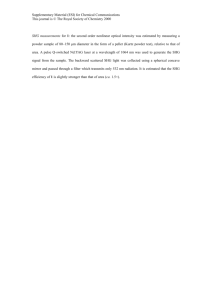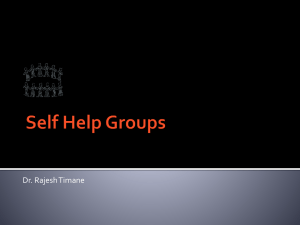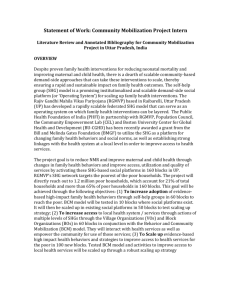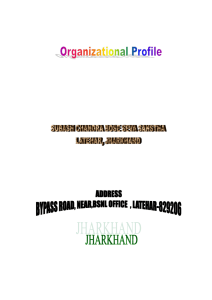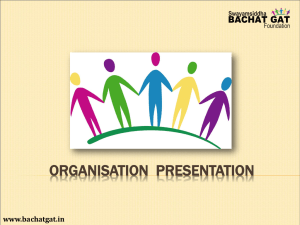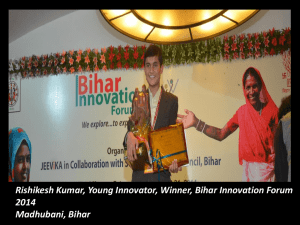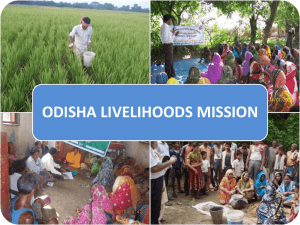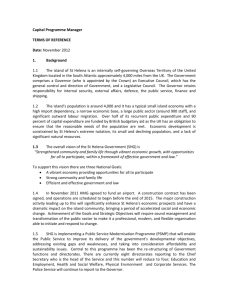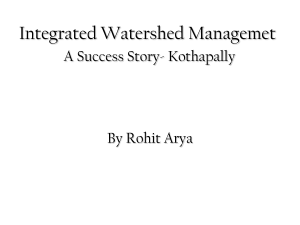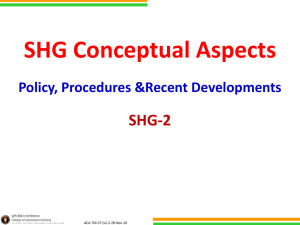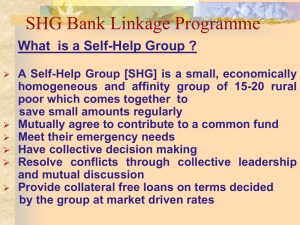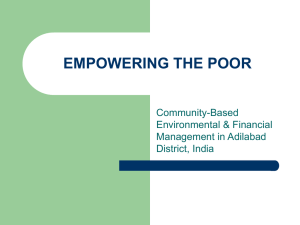C2_03_Bina-Swadaya-CIP
advertisement
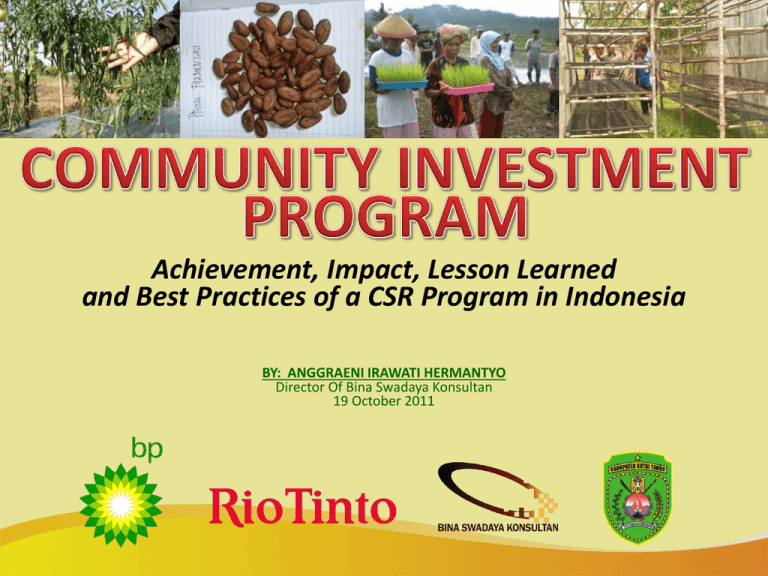
Achievement, Impact, Lesson Learned and Best Practices of a CSR Program in Indonesia BY: ANGGRAENI IRAWATI HERMANTYO Director Of Bina Swadaya Konsultan 19 October 2011 Community Investment Program (CIP): Towards Sustainable Community’s Livelihood and Natural Resources Funding British Petroleum and Rio Tinto Indonesia Period Location April 2008 - April 2011 Kaliorang sub-District, Kutai Timur District, East Kalimantan Province, covering 3 villages: Kaliorang Selangkau Bumi Sejahtera 2 15% 30% To increase 15% of farmers’ production To increase 30% of farmer’s product added value INSTITUTION Training and capacity building Accompaniment Demonstration plot PRODUCT LINKAGE Introducing appropriate technology Policy dialogue Post harvest handling (packaging, labeling) Finance access developing Stakeholders Involving Handling over Market linking Product Increase: 15% Paddy seeds breedings: per Kg = IDR3,500 Following the agreement with PT SHS, selling price per Kg Rp 4.250,- (increased 21.5%) Paddy : production: 2-3 ton per Ha, after CIP: 4-5 ton per Ha Additional Value increase: 30% Soymilk: Soybean price per Kg IDR 8,000,- after it's processed into soymilk, Price per Kg Rp 20,000, it has increased 150%. Processed banana (flour, chips, cookies): price increased 30-50% Processed Fish (Shreded fried fish or abon, fish crackers) = price increase 10-20% VCO = 10 coconuts= IDR15,000 processed into 1 litre of VCO = IDR 170,000 Developing Farmers’ Institution 24 SHGs, 3 SHG Forum, 1 CLC-Cooperative Developing 5 main Excellent Commodities banana, cacao, rice, compost, seaweed Market Chain: MoU with BUMN Sang Hyang Seri : certified rice seed and certified soybean seed purchasing Fairco Sawit: agreement on packaged rice purchasing Cooperative KPC: agreement on processed food product purchasing from farmers Finance access SHGs (village level) and CLCCooperative(Sub District level) using VPA (Vectorial Project Analysis) • This survey had a purpose to identify the development and change in livelihood and mindset aspect of SHGs members, after 3 years of facilitation. Survey was carried out 4 times, starting from preparation phase, growing phase, developing phase and self-reliance phase. • Survey carried out by interviewing 120 respondents from 24 SHGs which were selected purposively. Indicators LIVELIHOOD MINDSET • Income • Work Opportunity • Food Consumption • Sanitation and Hygiene • Activity in the group • Level of technology adoption • Saving habit • Self Confidence • Education • Gender Mainstreaming • Business Practice VPA DISTRICT LEVEL OF KALIORANG 10.00 9.00 7.71, 7.58 Livelihood 8.00 6.70, 7.12 7.00 1.97, 5.87 6.00 6.39, 6.20 1-2 5.00 2-3 4.00 3-4 LINEAR 3.00 2.00 1.00 0.00 0.00 1.00 2.00 3.00 4.00 5.00 6.00 mindset 7.00 8.00 9.00 10.00 12 It was important to put strong institutional basic to the community groups in the early phase/ stage of program. BSK implemented it through 5 key results area in each facilitated SHG, which covered basic of organization management development: Organization Administration, Capitalization, Entrepreneurship, and Acceptance/ Network Administration SHG Network Entrepreneurship In the beginning, SHG member learned to manage organization in a small level organization, like working group, therefore, by the end they would be able to manage bigger organization, namely CLC-Cooperative. Self reliance was characterized in the capability of self-financing. This was one of the principle that was believed by BSK in each community empowerment program. Since the beginning of program design, BSK ensured that community would learn self-reliance aspect through capitalization (one of the key result area) activity. It was started in SHG saving And loan activity SOLIDARITY ECONOMY at the SHG level A strong household economy was the basic of strong economy in the wider scale: Household – SHG – Village (Inter-group Cooperation Forum) – Sub-District (CLC/Cooperative). Basic principles that were built consisted of saving habit and household budgeting SOLIDARITY ECONOMY at Sub District level All stakeholders should participate in building CLC-Cooperative cadres confidence. It could be started by assigning them, and gradually put them in the position as business partner. SOLIDARITY ECONOMY At District level training and capacity building introducing appropriate technology: composting appropriate technology: chili nursery using bamboo pot as media, cacao fermentation, side grafting introducing appropriate technology: chili cultivation using mulching introducing appropriate technology: cacao post harvesting using fermentation sea grass cultivation training introducing appropriate technology: SRI (System of Rice Intensification) method farmers are practicing making liquid bio fertilizer using materials of banana stem developing cooperative product packaging cooperative Thank You …”There is no more powerful institution in society than business... The business of business should not be about money, it should be about responsibility." – Anita Roddick, the Founder of The Body Shop
